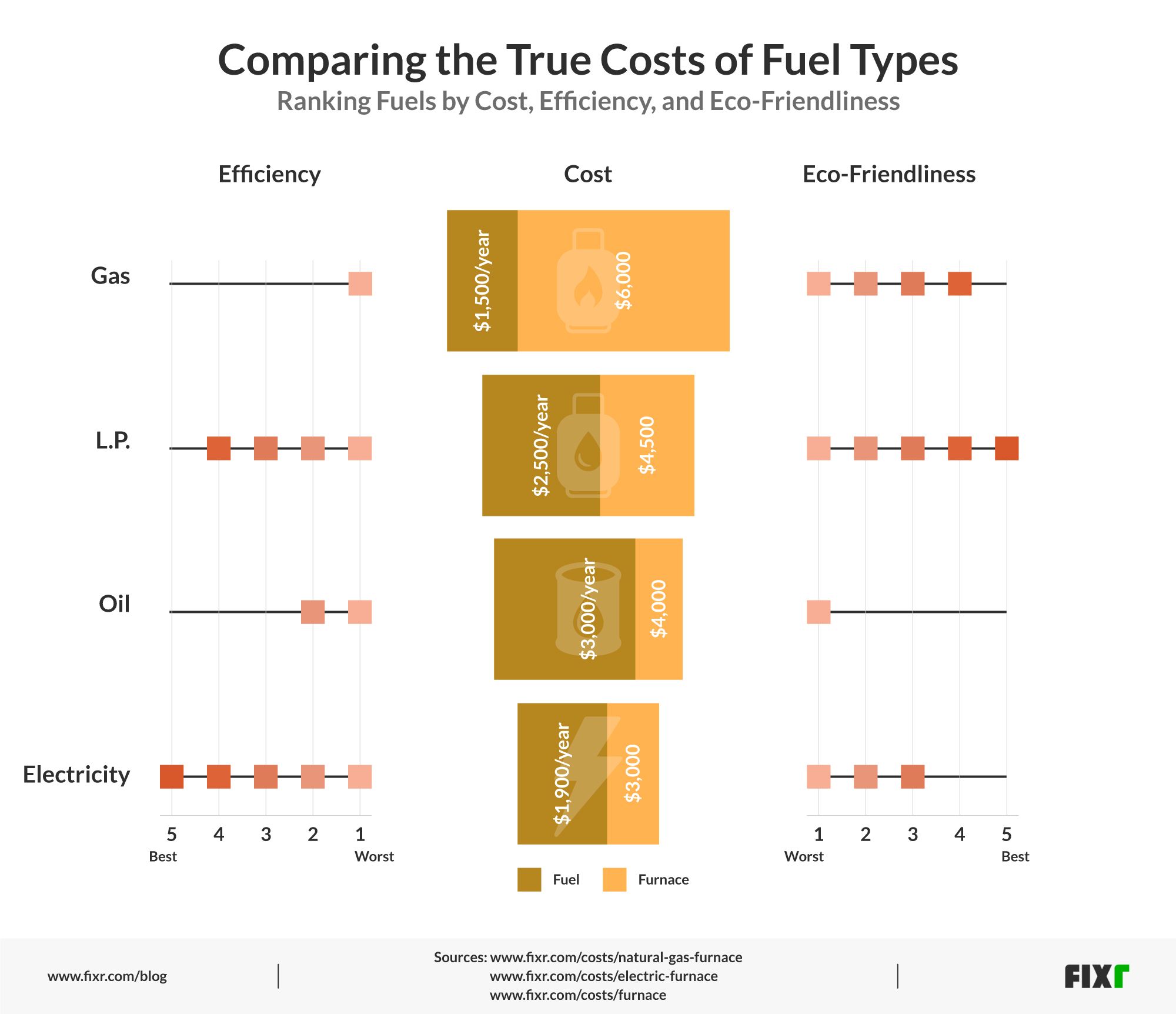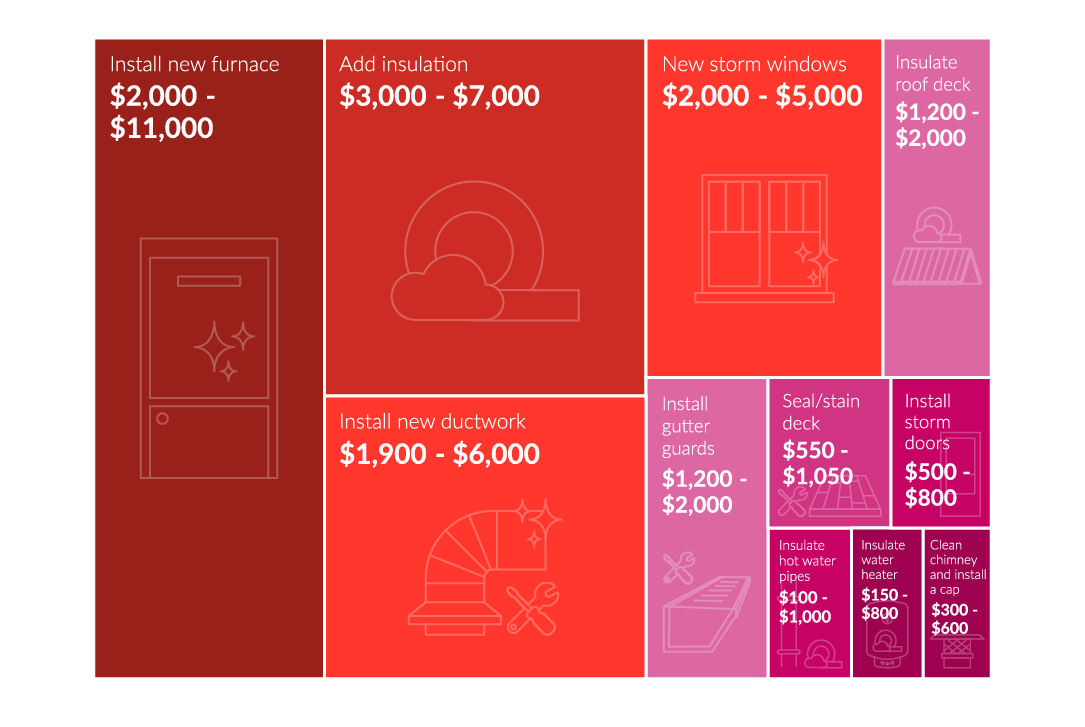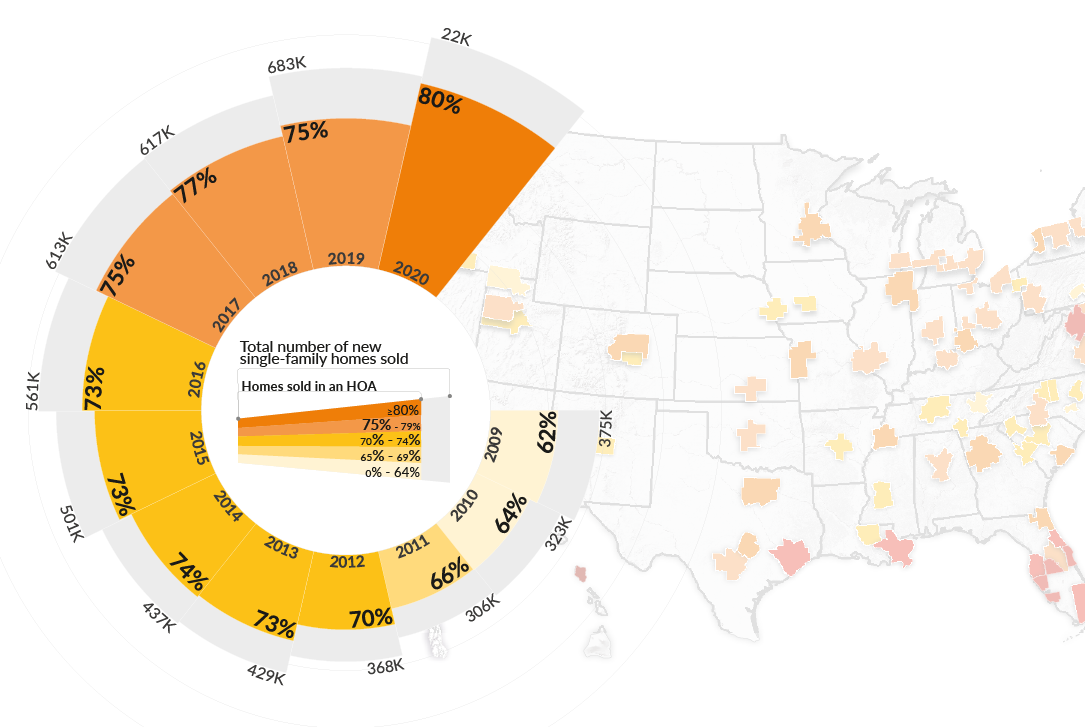If you choose to heat your home with forced hot air, then you’ll also need to choose what type of fuel you’ll use to power your furnace. Depending on where you live, you may have as many as four choices - oil, gas, electricity, and liquid propane. There are a variety of factors you’ll want to consider to make the right choice for your home, including the cost of the furnace, cost of the fuel, how efficient it is, and how eco-friendly it is. By comparing these factors, you can make the most informed choice for how you’ll proceed.

Fixr has created a graphic that can help you grasp these various factors quickly. Each one has been ranked on a scale of 1 - 5, with 1 being the worst and 5 being the best. You can now see at a glance how each fuel ranks for the varying factors, as well as what your total costs will be in ratios that include both the furnace itself and the cost of the fuel.
Comparing Costs
The cost of the furnace is usually one of the first concerns that people have. Furnaces are a big investment, and they’re expected to last for 12 to 20 years before needing replacement. The first thing to consider is the fact that each furnace type has a wide range of costs. The costs are generally related to the efficiency of that unit - the more efficient the unit is, the less fuel it will consume. This translates into lower monthly or yearly energy rates, although you will usually end up paying for a more expensive unit.
The cost of the unit itself is also only one piece of the puzzle. The yearly costs to run the unit also need to be considered. For example, gas furnaces tend to be more expensive than other types, but they cost the least to run each year. So, while you’ll be making a bigger upfront investment, you’ll save long term. You should also consider the availability of each of the fuel types when considering costs. Most rural areas do not have access to gas, which means using propane, electricity, or oil. While propane is made from gas, it isn’t the same thing. You’ll need to consider it separately, especially if you have the choice of either one.
Looking at Other Factors
The costs you pay for your fuel and your furnace are just one part of the puzzle when it comes to deciding which will be the best for you and your needs. There’s also the efficiency of the furnace and the impact it has on the environment as well.
Efficiency is a tricky word when it comes to furnaces and fuel. It’s easy to confuse it with the type of efficiency referred to when considering how eco-friendly something is. But in this instance, efficiency really means how much of the fuel that is going into the furnace is being converted to heat. The more efficient a furnace is, the more of that fuel is actually going into heating your home, and not being wasted.
Surprisingly, when it comes to efficiency, electricity is actually the best. Many models use up to 100% of the energy, converting it all into heat. Liquid propane and oil can also be very efficient, converting up to 90% of their energy. Gas has become more efficient in recent years, but still lags behind slightly with most units converting only up to 85% of the energy into heat.
Separate from this is the environmental impact factor of each fuel type. This is calculated by how much greenhouse gas each type is producing, the impact on the environment that retrieving the fuel has, as well as the impact on your health and on the surrounding area. Of these, liquid propane scores the best. It does not release carbon when burned, and has the lowest environmental impact. Gas and electricity have a similar impact and similar levels of emissions, and oil scores the worst, with the biggest negative impact on the environment and the highest levels of emissions when burned.
Weigh All the Data
When choosing which furnace will be the best fit for you, you need to weigh all the possible costs and impacts it may have. Keep in mind that not all fuels are available in all areas, and that the cost of each fuel can vary tremendously based on region, so you may find that the cost of one may be better for you than another. Weigh all this data together when choosing your furnace to get the best possible choice for your home, budget, and lifestyle.




